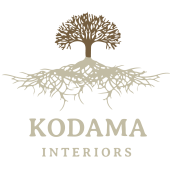Process
Our Approach
Embodying the vibrant energy of the tropical island with a touch of elegance from nature into sophisticated modern spaces is the secret behind our craftsmanship. Solid wood furniture and decorative items are tailored to upscale residences and high-end hospitality projects.
Our market research indicated that commercial buildings lacking in soul tend to experience higher vacancy rates, while those infused with a sense of SOUL and thoughtful design tend to yield higher returns on investment and leave a long-lasting impression. Incorporating large pieces of wood into the design enhances this impression even further. Offering a touch of authenticity and warmth resonates with visitors and yields higher occupancy rates.
FURNITURE MAKING PROCESS
Sustainability
We buy mainly from one reliable supplier, always knowing where the tree came from. We work exclusively with legally harvested timber that is produced sustainably with licensing. The ‘Acacia’ is considered a very sustainable choice in wooden furniture.
Drying
All pieces must be properly dried to prevent cracking, tearing, or warping, an aspect often neglected in Thailand. Proper drying will ensure the longevity of your treasured furniture pieces. All our pieces are dried for at least 12 months up to 18 months to stay with you for generations, considering the hot and moist tropical weather.
Longevity
Adequate drying will ensure longevity; however, wood always works/keeps moving. Therefore, we cannot fully guarantee that small cracks will occur. If things go wrong, we are always willing to find a suitable solution. Fortunately, this is rare.
Finishings
There are several options, such as Tung oil, Saicos matt lacquer, or poly-eurothane. Each will give a very different appearance (and protection). Tung oil makes the wood dark and warm and emphasizes the beautiful drawing of the wood. Saicos lacquer makes the table extremely matte, and the color does not change much. We will finish according to our customer’s preferences.
Pricing
Trees always grow tall but seldom grow wide. The wider, thicker, and more figurative the slab, the higher the cost. Wide-diameter trees are fairly rare and priced accordingly. Additionally, the harder the wood, the higher the price.


